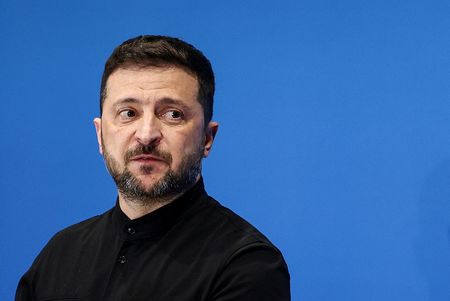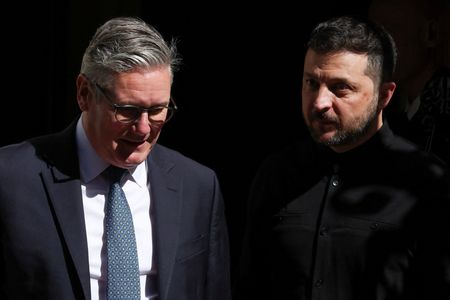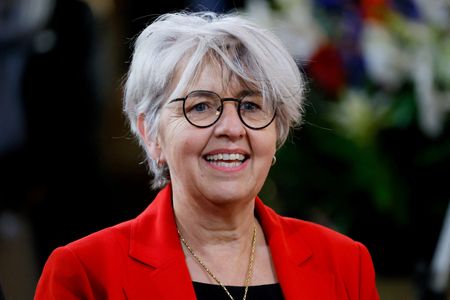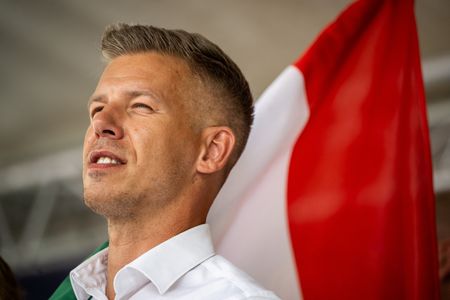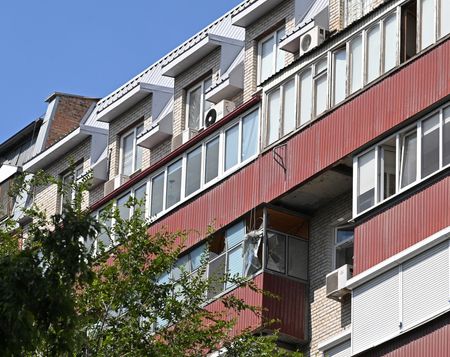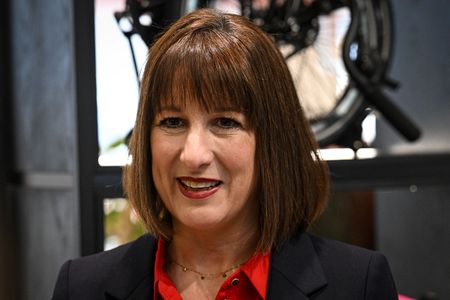MOSCOW (Reuters) -WhatsApp accused Moscow of trying to block millions of Russians from accessing secure communication after calls on the messaging app were restricted, as Russia promotes home-grown social media platforms and seeks greater control over the country’s internet space.
Russia said on Wednesday that it had started restricting some WhatsApp, owned by Meta Platforms, and Telegram calls, accusing the foreign-owned platforms of failing to share information with law enforcement in fraud and terrorism cases.
Text messaging services and voice notes are currently unaffected.
A simmering dispute with foreign tech providers intensified after Moscow’s February 2022 invasion of Ukraine, with Russia blocking Meta’s Facebook and Instagram, slowing the speed of Alphabet’s YouTube and issuing hundreds of fines to platforms that failed to comply with Russian rules on online content and data storage.
“WhatsApp is private, end-to-end encrypted, and defies government attempts to violate people’s right to secure communication, which is why Russia is trying to block it from over 100 million Russian people,” WhatsApp said late on Wednesday.
“We will keep doing all we can to make end-to-end encrypted communication available to people everywhere, including in Russia.”
Telegram said its moderators were using AI tools to monitor public parts of the platform to remove millions of malicious messages every day.
“Telegram actively combats harmful use of its platform including calls for sabotage or violence and fraud,” Telegram said.
In July 2025, WhatsApp’s monthly reach in Russia was 97.3 million people, compared to 90.8 million for Telegram, according to Mediascope data. Third-placed VK Messenger, an offering from state-controlled tech company VK, reached 17.9 million people.
Russia has a population of more than 140 million people.
STEADY DEGRADATION
Russia banning WhatsApp and Telegram users from making calls comes as the government is actively promoting a new state-controlled messaging app, MAX, that will be integrated with government services and which critics fear could track its users’ activities.
Senior politicians are migrating to MAX, urging their followers to come with them.
Anton Gorelkin, a leading regulator of Russia’s IT sector in parliament, said he would post to his MAX followers first and said many other lawmakers would soon follow suit.
WhatsApp’s other services remain available for now, but the steady degradation of a service is a tactic Russia has employed before, notably with YouTube, where slower download speeds have made it harder for people to access content.
Human Rights Watch said in a report last month that Russia has been “meticulously expanding [its] legal and technological tools to carve out Russia’s section of the internet into a tightly controlled and isolated forum”.
Lawmakers have approved a new law that tightens censorship and could have sweeping ramifications for digital privacy, with Russians facing fines if they search online for content Moscow considers “extremist”, including via virtual private networks that millions use to bypass internet blocks.
(Reporting by Reuters; Writing by Alexander Marrow; editing by Guy Faulconbridge and Toby Chopra)



